Date: 2025-05-21
The Fifth World Congress of Taiwan Studies (WCTS) officially opened today (May 21) at Academia Sinica. This triennial international academic event has reached an unprecedented scale, making it the largest Congress to date. In his opening address, Academia Sinica President James C. Liao remarked that the three-day event has attracted over 750 scholars from 30 countries, showcasing the growing global significance of Taiwan Studies amid rapidly shifting international dynamics and highlighting the field’s remarkable vitality.
President Liao also remarked that this rare gathering of international scholars offers a valuable opportunity for interdisciplinary academic dialogue, enabling in-depth exploration of Taiwan’s relationship with the world amid a changing global landscape. He expressed hope that the WCTS would help expand transnational collaborative networks in Taiwan Studies, thereby enhancing its global visibility and academic depth. He concluded by extending his sincere thanks to the National Taiwan Normal University for co-organizing the WCTS, as well as to the many other academic institutions and government agencies in Taiwan for their generous support.
Keynote Speeches and Book Forums: Prominent Scholars Discuss Taiwan Amid Global Transformations
Held from May 21 through May 23, the WCTS features multiple book launch events, thematic panels, and roundtable discussions, for a total of 155 sessions. The diverse and wide-ranging topics cover archaeology, arts, economics, history, indigenous studies, law, linguistics, literature, politics, religion, and society.
The opening day featured Academician Li Jen-Kuei and Academician Wu Yu-Shan’s delivering keynote speeches. First, Academician Li delivered a keynote speech entitled “The Diversity of Formosan Languages and Austronesian Homeland,” in which he offered a comprehensive analysis of Taiwan’s pivotal role within the Austronesian language family. He indicated that the high degree of linguistic diversity among Austronesian languages in Taiwan strongly hints that the Austronesian peoples most likely originated from Taiwan before migrating outwards to other islands across the Pacific and Indian Oceans. This perspective is supported by archaeological and genetic evidence. Li’s keynote speech also sparked lively discussions among attendees.
Academician Wu Yu-Shan delivered a keynote speech entitled “Taiwan: Thriving in a World of Geopolitics and Mercantilism,” in which he examined significant shifts in the current international landscape. He observed that the world is transitioning from a liberal order toward one based on geopolitical and neo-mercantilist competition. Situated at the center of U.S.-China rivalry, Taiwan must uphold its commitments to liberal democratic principles while navigating the changes and assessing its national strategy. Only by doing so, Wu argued, can Taiwan move forward steadily in this volatile global environment.
On May 23, Academician Wu Yu-Shan will also serve as a discussant in a book launch forum alongside political scientist Amitav Acharya, former President of the International Studies Association(ISA). Acharya has specially chosen the WCTS as the venue to launch his latest work, The Once and Future World Order: Why Global Civilization Will Survive the Decline of the West. The discussion on the state of world order under a multipolar system by these two prominent scholars has sparked interest from various parties.
The WCTS has arranged visits to the Hu Shih Memorial Hall and the Museum of the Institute of History and Philology at Academia Sinica for international scholars to enrich their understanding of Taiwan’s cultural and historical heritage. Participants indicated that touring Hu Shih’s former residence and viewing the museum’s extensive archaeological and historical exhibits has provided them with a deeper understanding of Taiwan’s unique cultural context and history.
2028 WCTS To Be Held in California
The WCTS held its inaugural meeting in 2012 and a tradition has been established over the past decade whereby the hosting of the WCTS alternates among Taiwan and various international research institutes. The number of participants has steadily increased over the years, and the WCTS has grown to become the most influential academic event in the field of Taiwan Studies.
The Sixth World Congress of Taiwan Studies is scheduled to be hosted in 2028 by the University of California, San Diego (UCSD). Professor Ping-hui Liao, who holds the Chuan-liu Endowed Chair in Taiwan Studies at UCSD, has traveled from the United States to attend this year’s Congress and will speak at the closing ceremony. Looking ahead, the WCTS will continue its mission to strive to establish a leading international platform for scholarly exchange, and deepen the world’s understanding of and engagement with Taiwan, bring Taiwan Studies to a global audience.
The Fifth World Congress of Taiwan Studies:
https://wctsv.project.sinica.edu.tw/english/english_index.html
-
Mr. Jerry Yang, Institute of Political Science, Academia Sinica
(02)8170-5125#6729, twstudy@gate.sinica.edu.tw
-
Ms. Yi-ling Lee, Media & Public Affairs, Secretariat, Academia Sinica
(02) 2787-2717,cvcc54@as.edu.tw
-
Ms. Steffi Tung Lin, Media & Public Affairs, Secretariat, Academia Sinica
(02) 2789-8820,tunglin@as.edu.tw
-
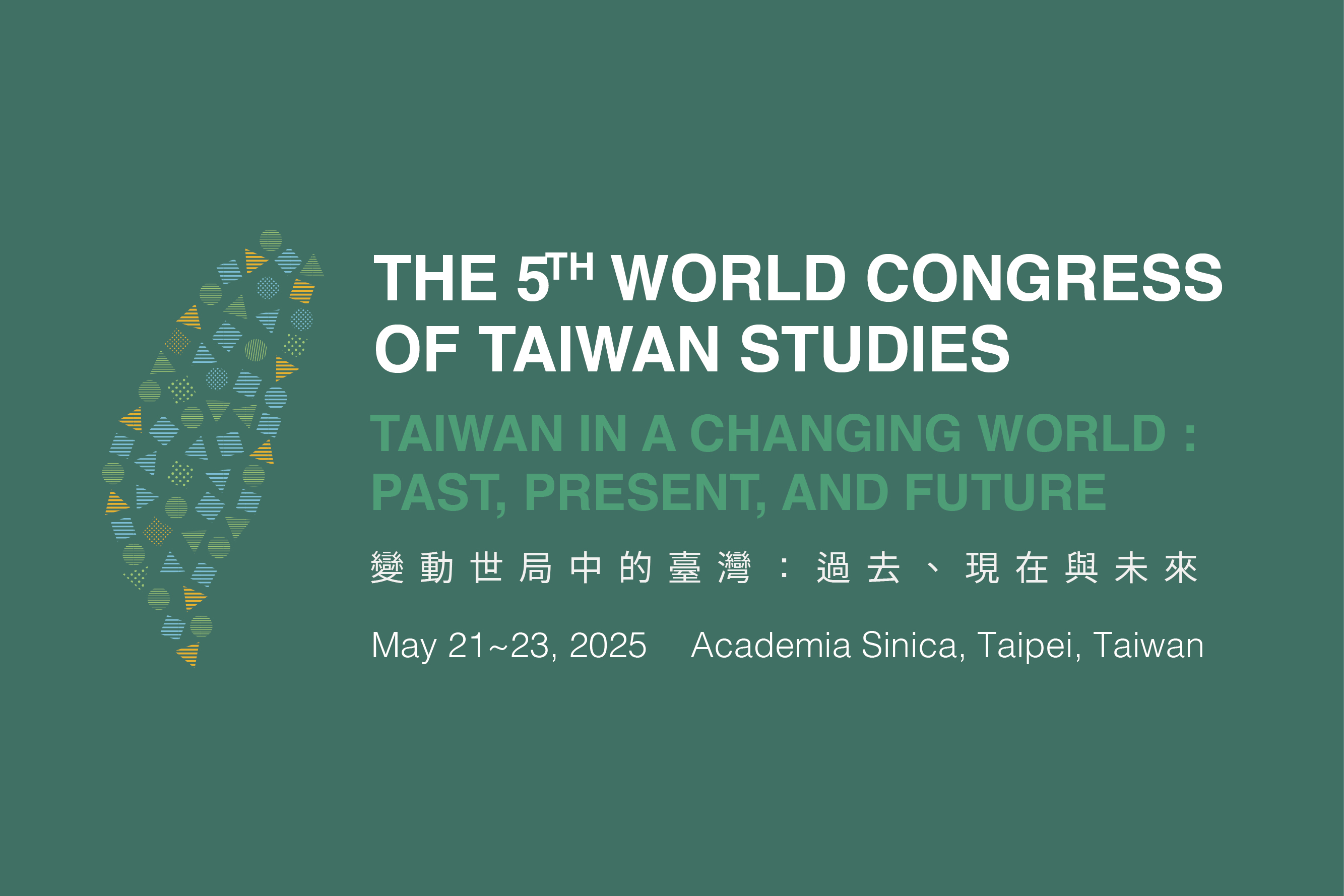 The Fifth World Congress of Taiwan Studies information Photo credit Academia Sinica
The Fifth World Congress of Taiwan Studies information Photo credit Academia Sinica
-
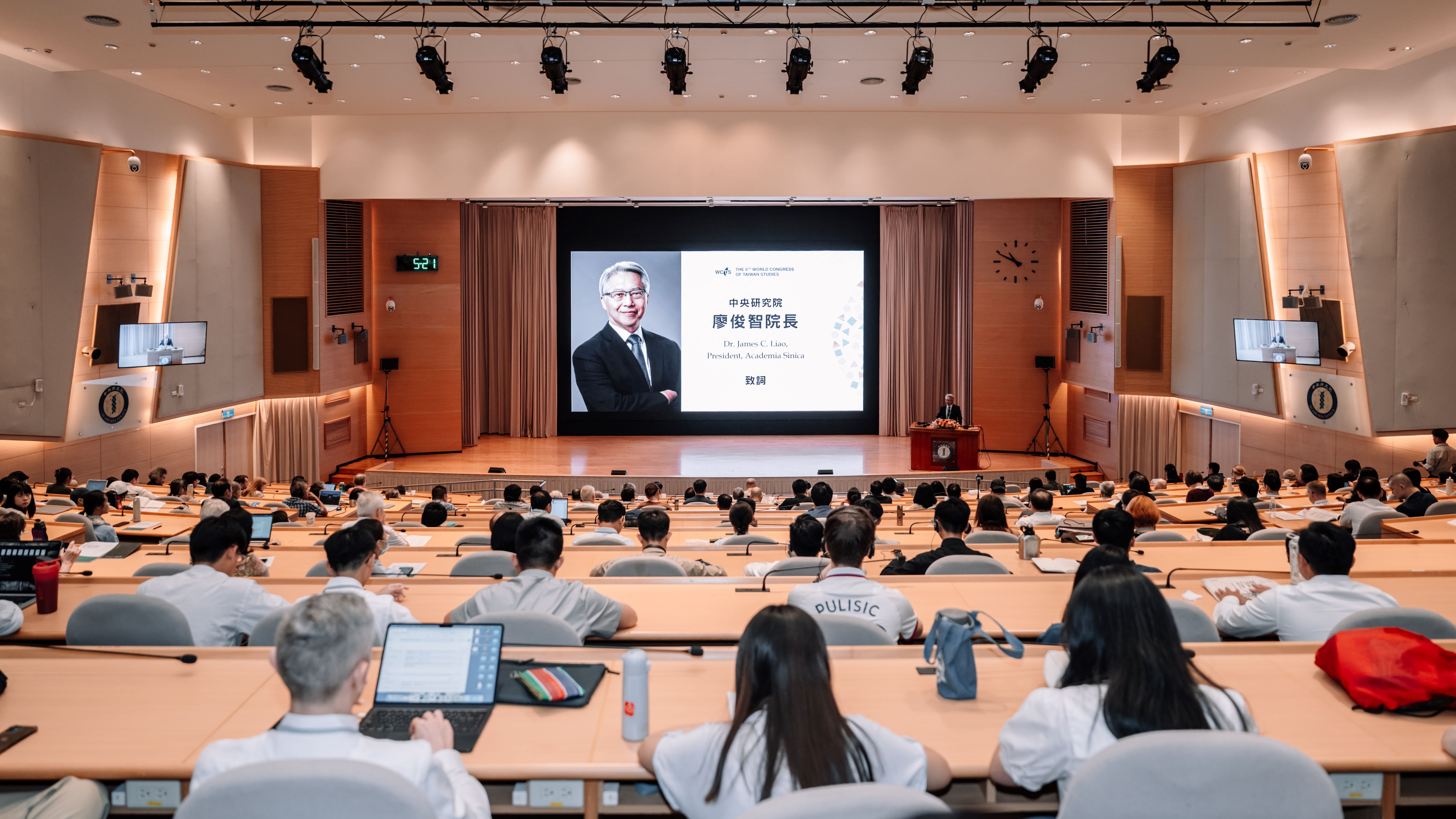 Academia Sinica President James C. Liao delivered a speech. Photo credit Academia Sinica
Academia Sinica President James C. Liao delivered a speech. Photo credit Academia Sinica
-
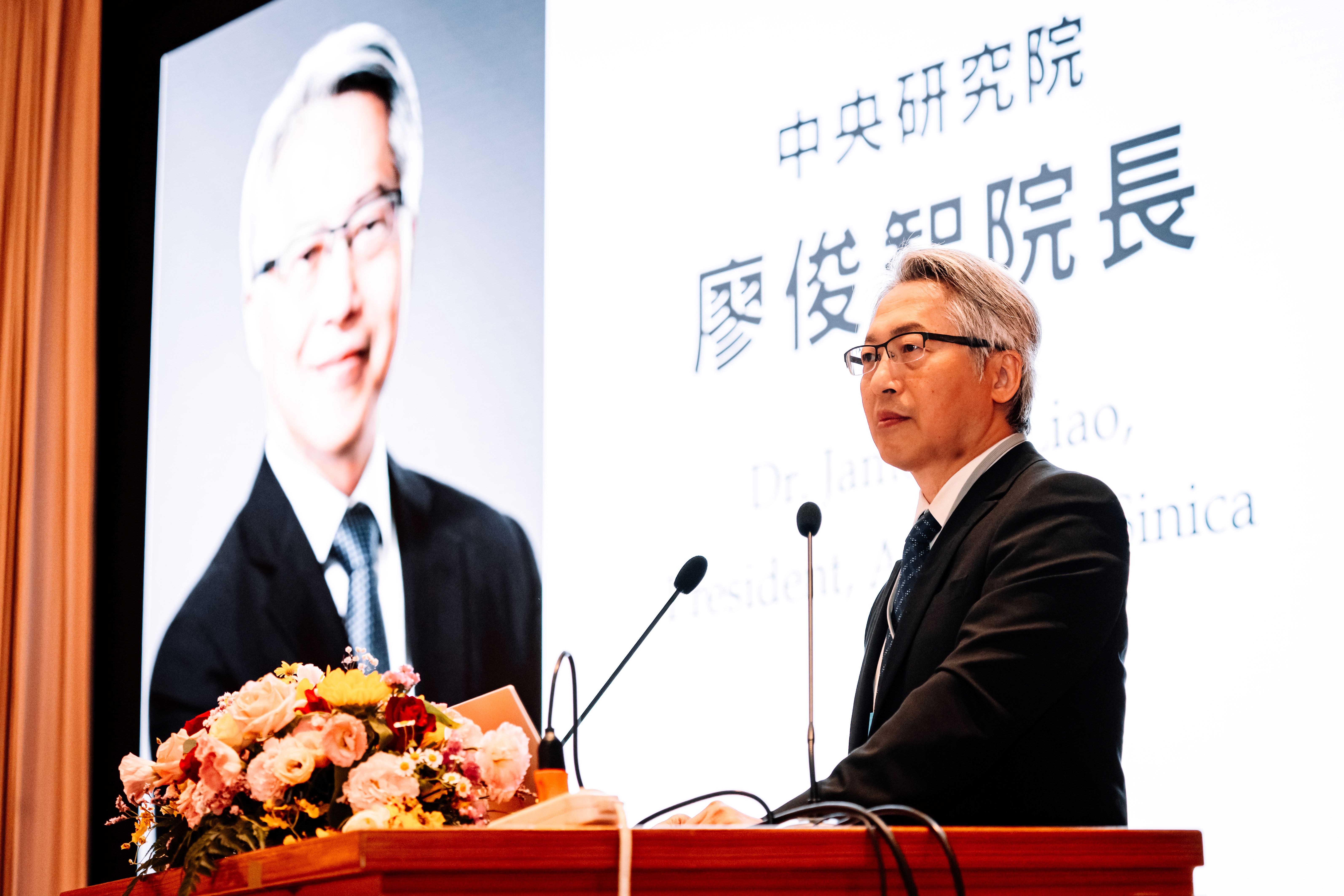 Academia Sinica President James C. Liao delivered a speech. Photo credit Academia Sinica
Academia Sinica President James C. Liao delivered a speech. Photo credit Academia Sinica
-
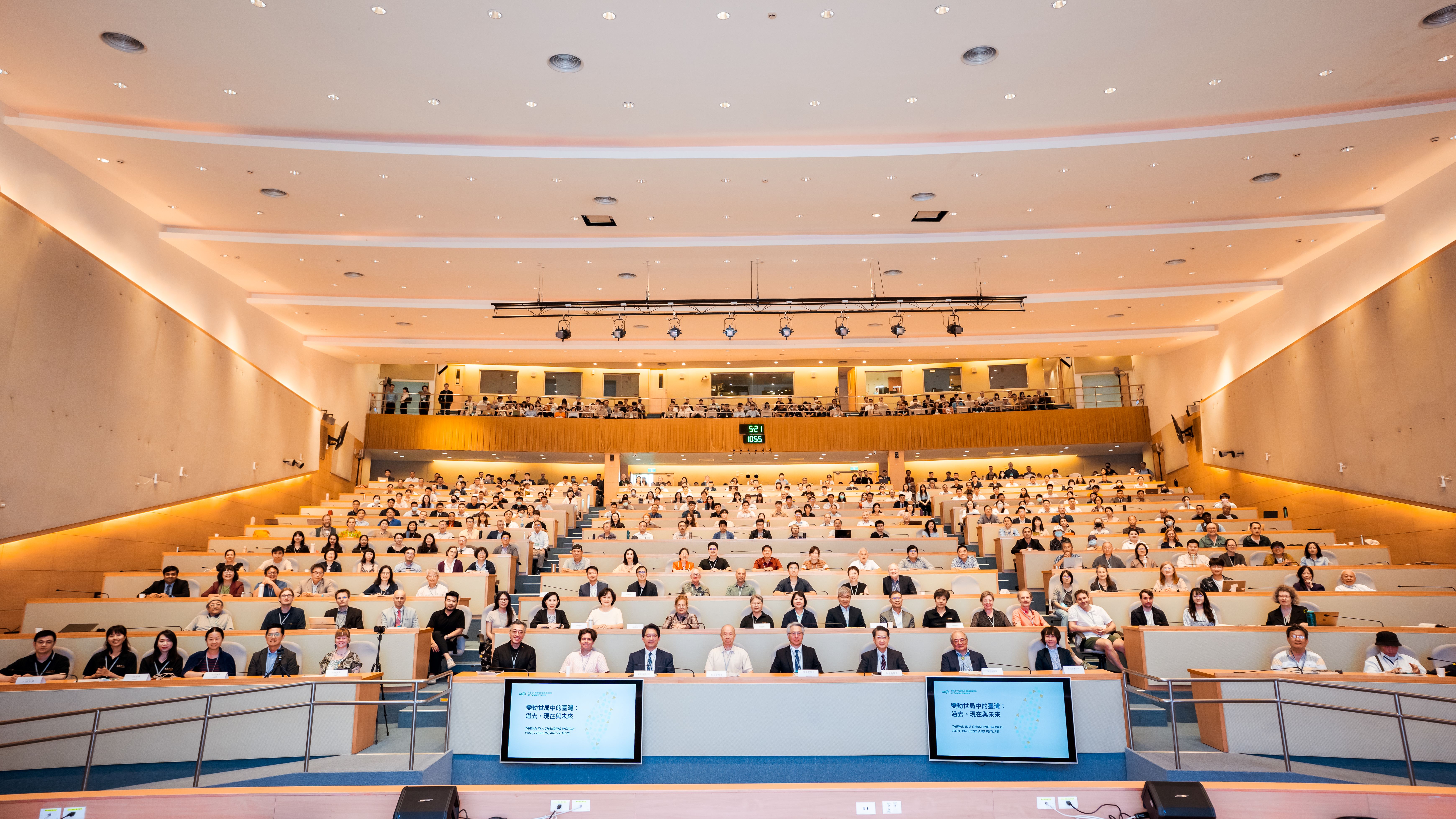 Group photo .Photo credit Academia Sinica
Group photo .Photo credit Academia Sinica
-
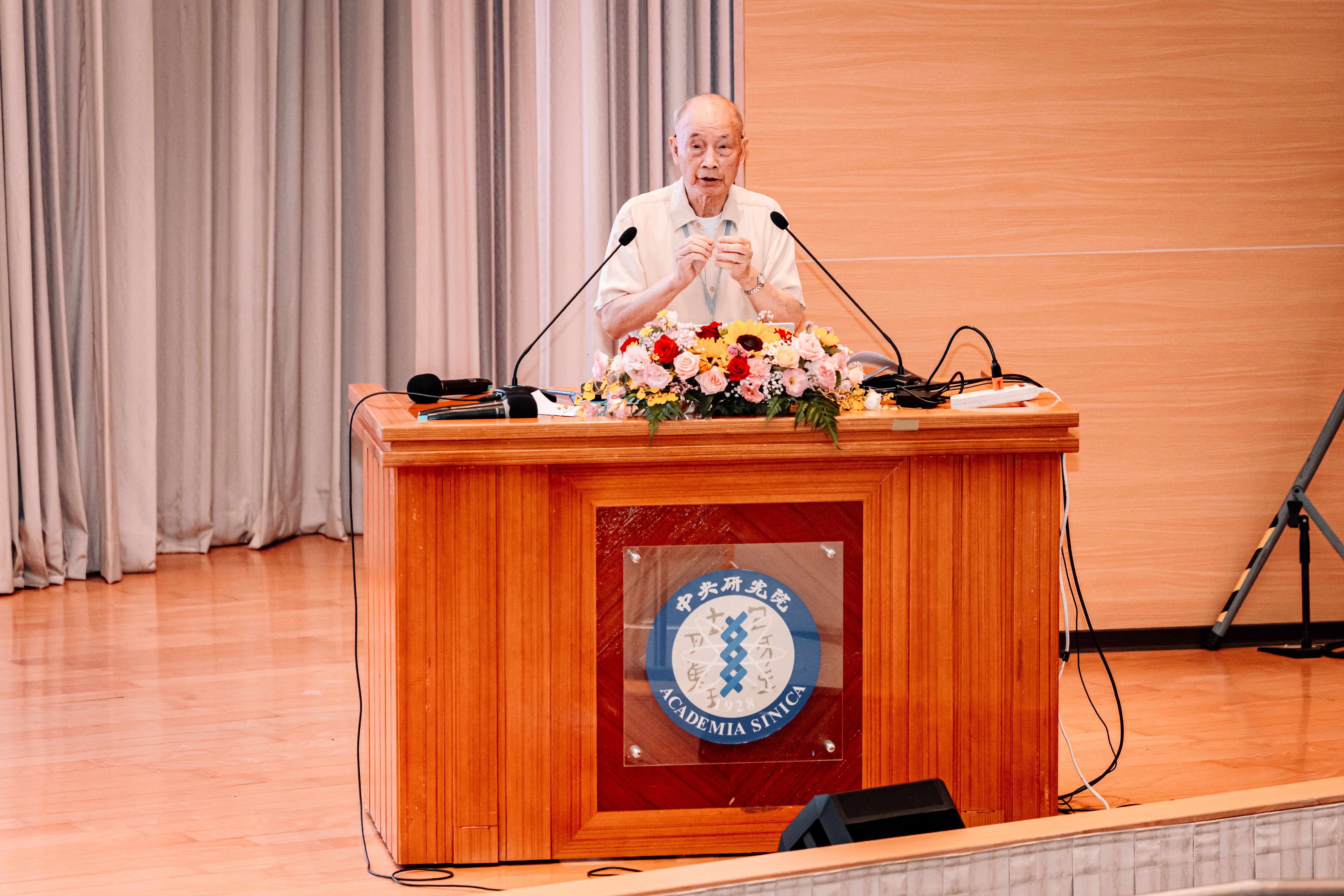 Li Jen-Kuei is delivering a keynote speech.Photo credit Academia Sinica
Li Jen-Kuei is delivering a keynote speech.Photo credit Academia Sinica
-
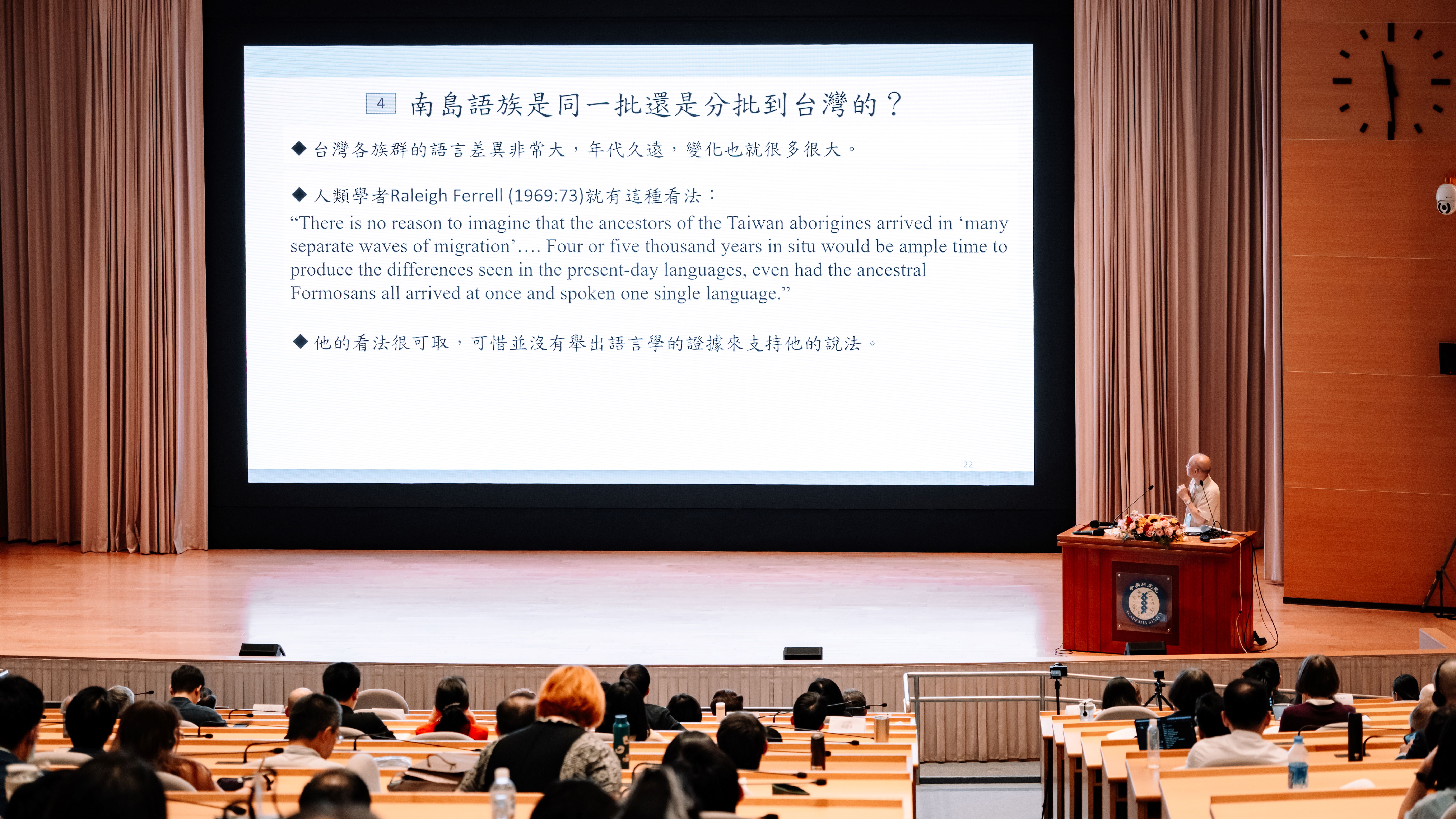 Li Jen-Kuei is delivering a keynote speech.Photo credit Academia Sinica
Li Jen-Kuei is delivering a keynote speech.Photo credit Academia Sinica
-
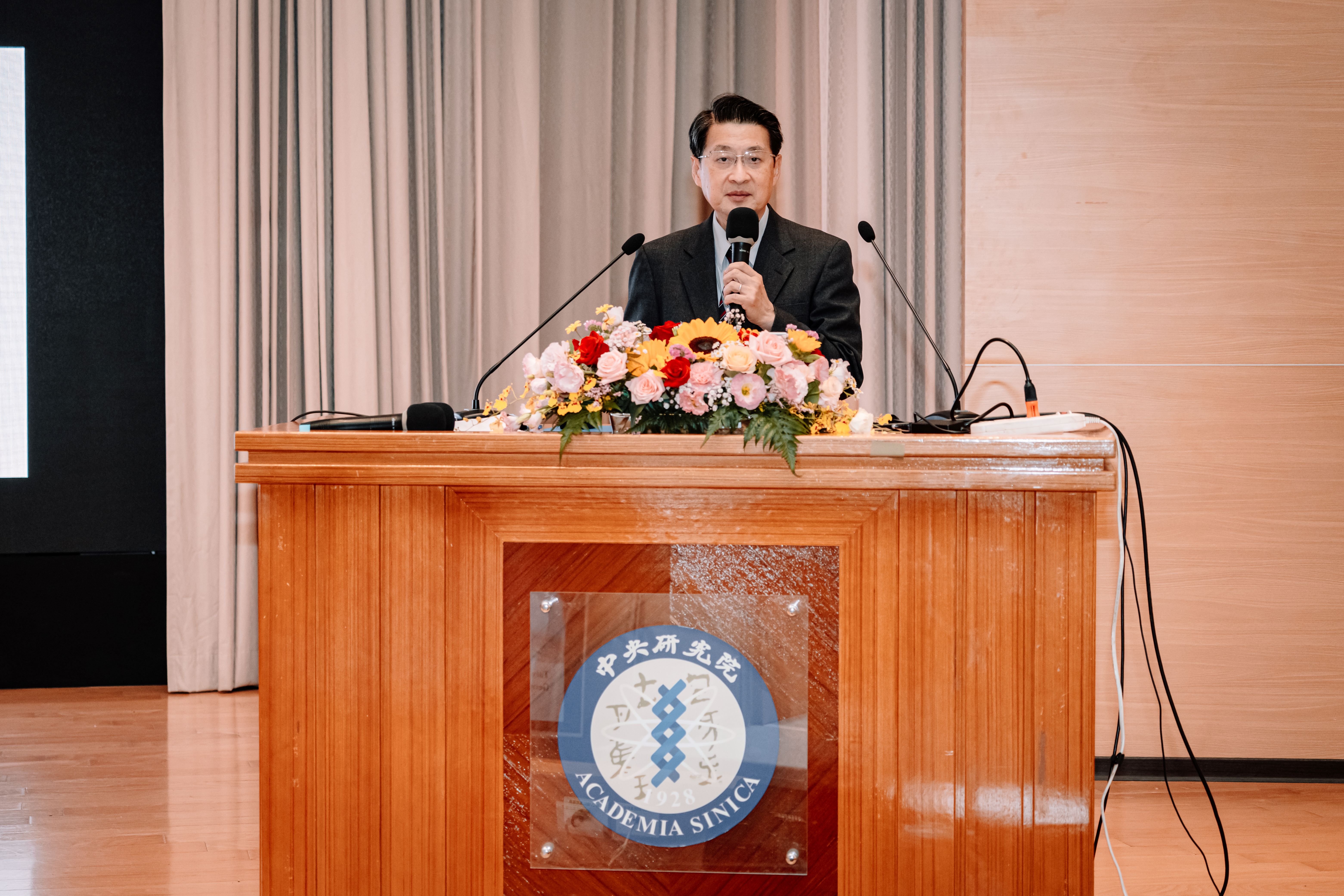 Wu Yu-Shan is delivering a keynote speech.Photo credit Academia Sinica
Wu Yu-Shan is delivering a keynote speech.Photo credit Academia Sinica
-
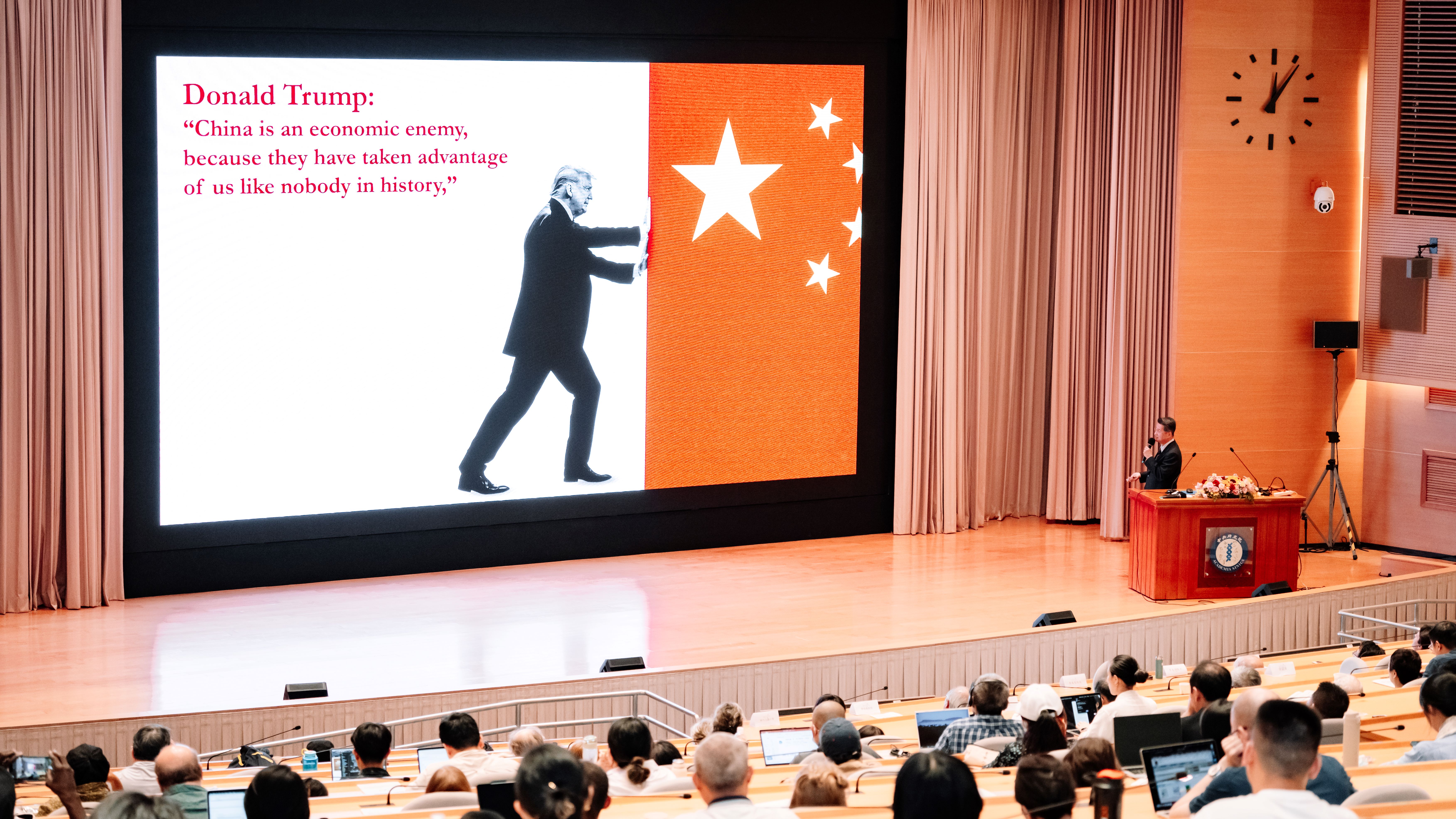 Wu Yu-Shan is delivering a keynote speech..Photo credit Academia Sinica
Wu Yu-Shan is delivering a keynote speech..Photo credit Academia Sinica
-
.Photo credit Academia Sinica.jpg) Participating scholars.Photo credit Academia Sinica
Participating scholars.Photo credit Academia Sinica
-
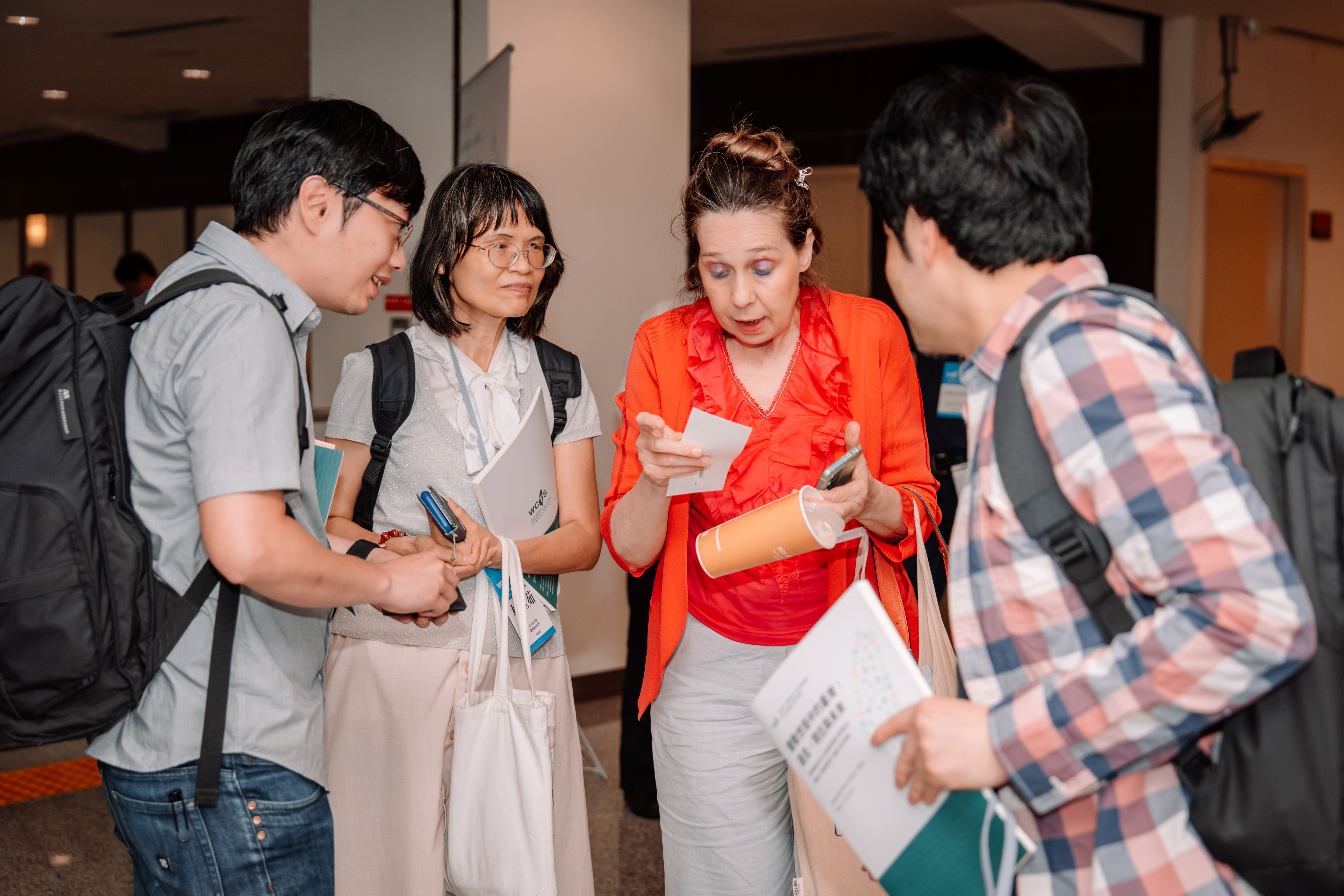 Participating scholars.Photo credit Academia Sinica
Participating scholars.Photo credit Academia Sinica
-
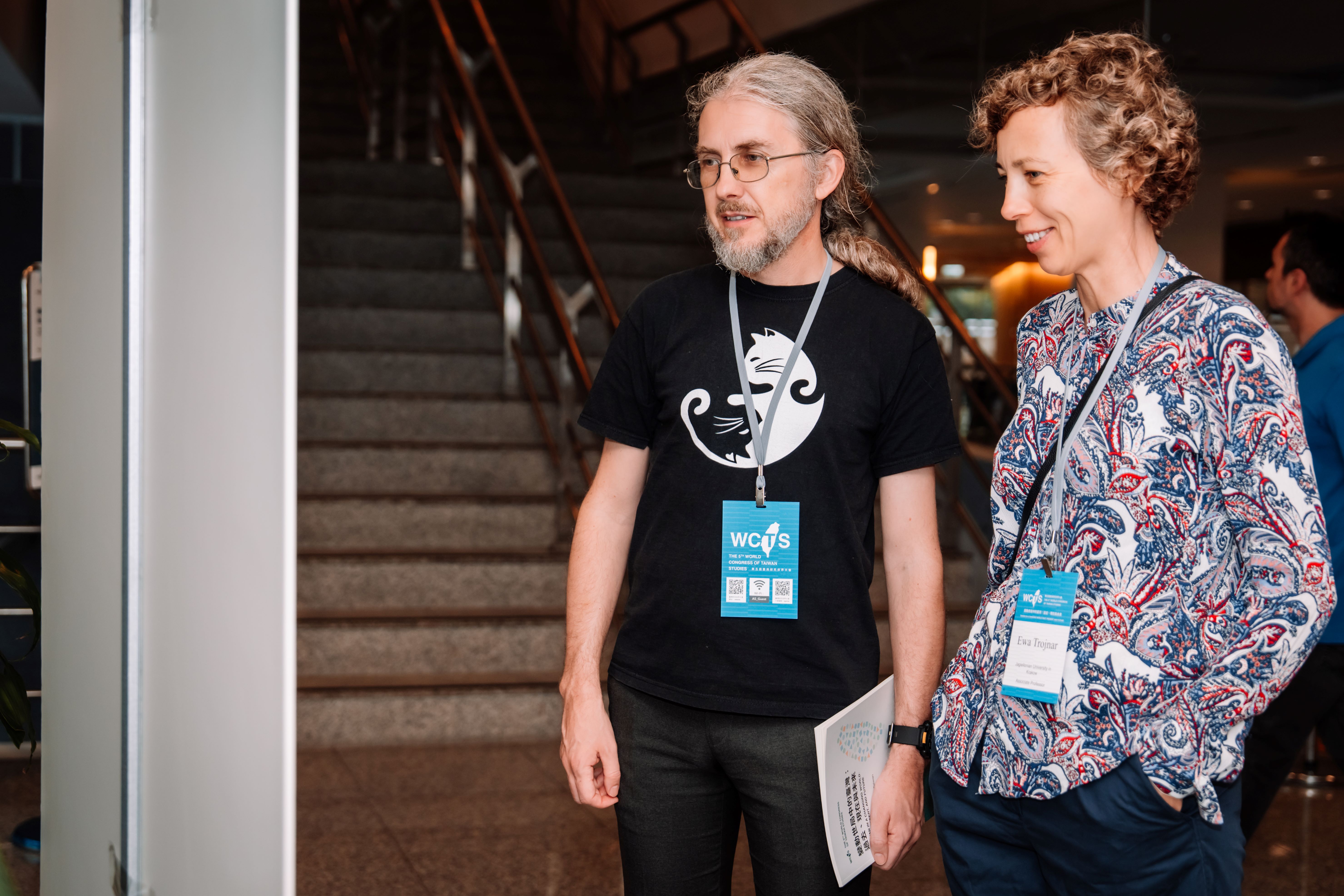 Participating scholars.Photo credit Academia Sinica
Participating scholars.Photo credit Academia Sinica
-
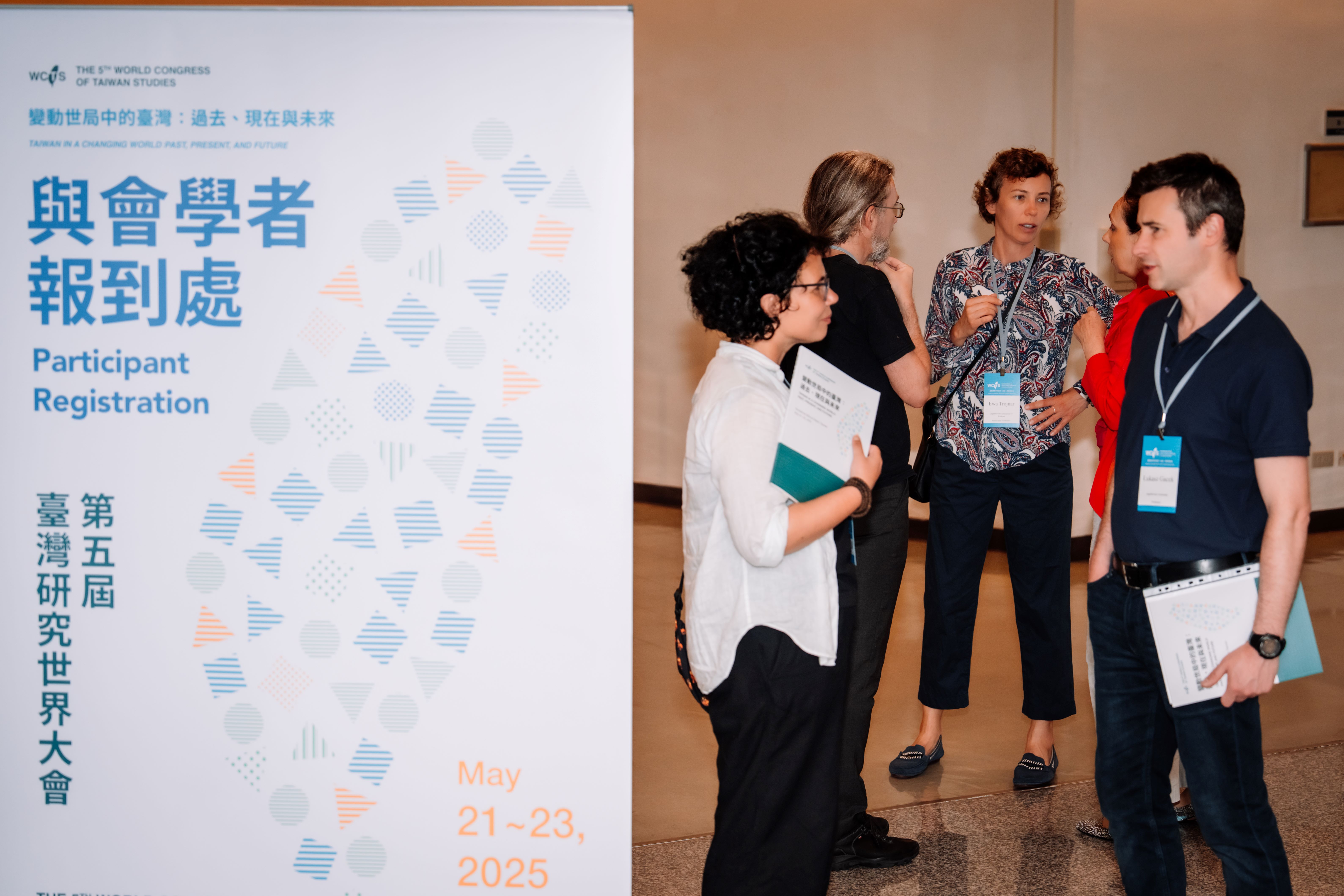 Participating scholars.Photo credit Academia Sinica
Participating scholars.Photo credit Academia Sinica
-
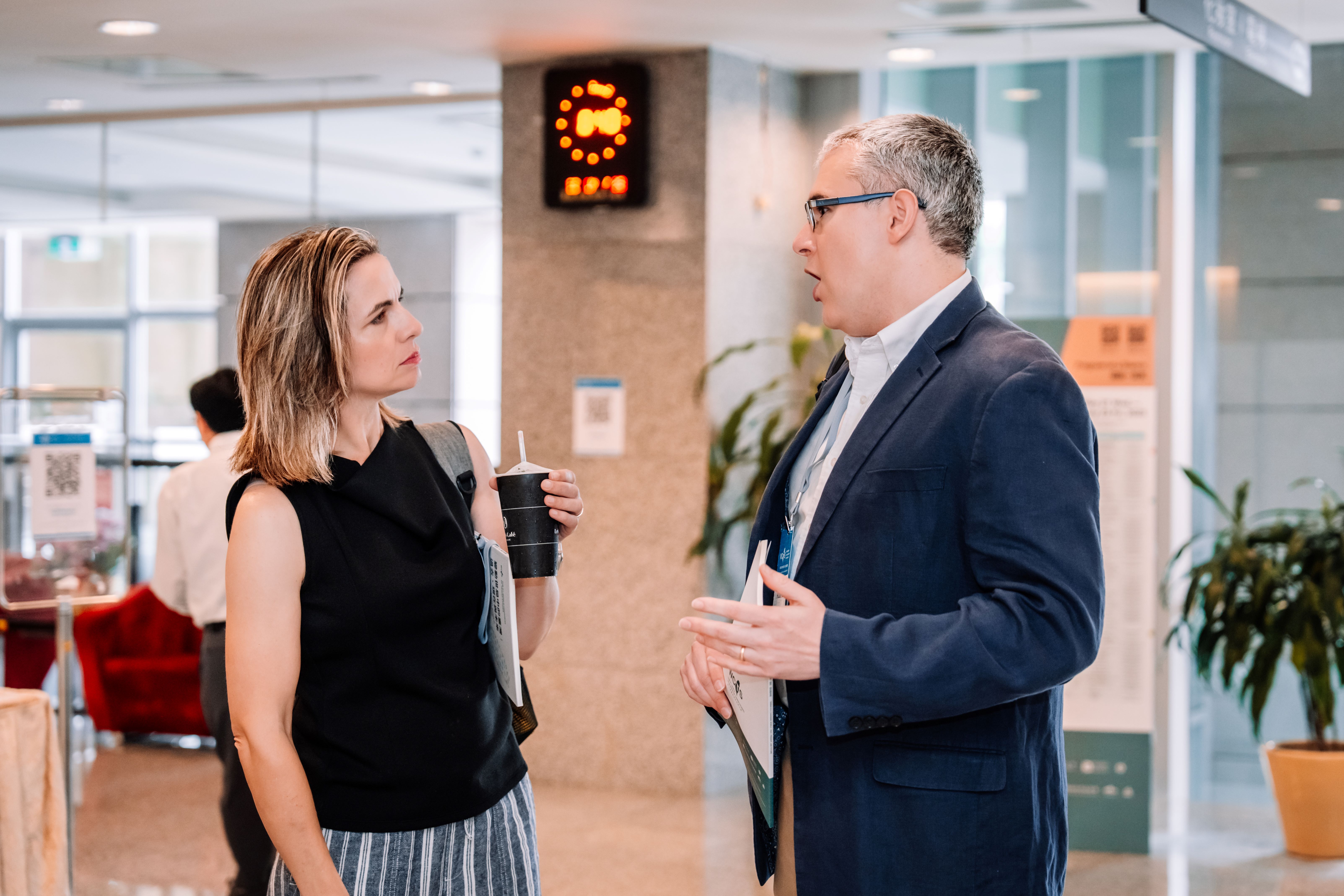 Participating scholars.Photo credit Academia Sinica
Participating scholars.Photo credit Academia Sinica
-
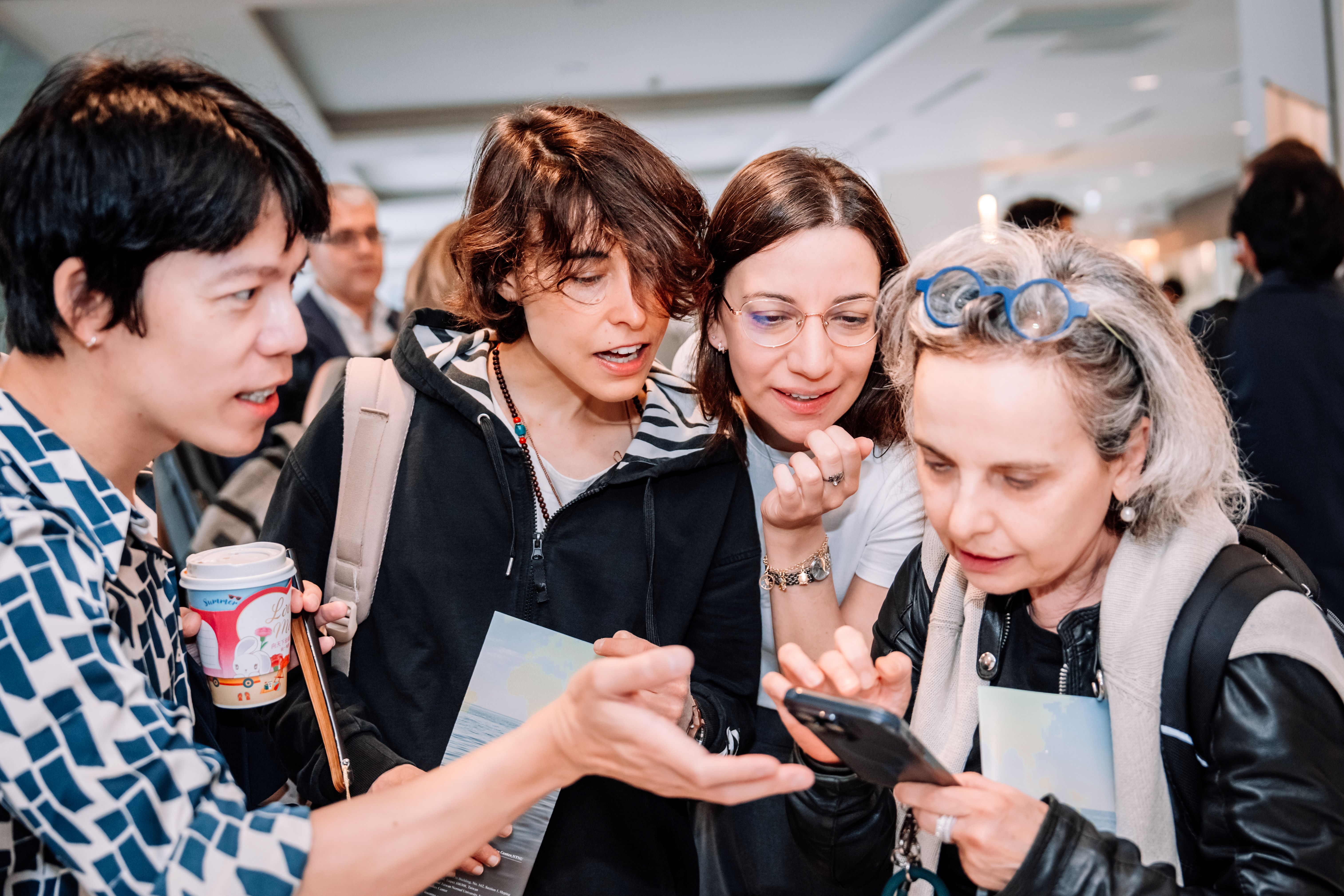 Participating scholars.Photo credit Academia Sinica
Participating scholars.Photo credit Academia Sinica









 Home
Home
